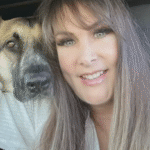An important public meeting regarding a proposed local law (Ordinance 55) regulating pet shops took place on November 24, 2014 in New York, NY. Companion Animal Protection Society (CAPS) Founder and President Deborah Howard testified in support of the bill. CAPS has played a vital role in providing statistical proof that retail pet stores in New York City sell puppies sourced from puppy mills with USDA violations. When Int. No. 55-A was introduced for the first time, CAPS General Counsel John Maher was among the first to testify in support of the bill. The proposed amendment would significantly improve the New York City Retail Pet Sales Law and related ordinances concerning spay, neuter, and micro chipping requirements. Ordinance 55 will also place tougher restrictions on pet shops in New York City.
Key Changes:
– All pet shops would have to obtain an operating permit issued by the Department of Health and Mental Hygiene. The stores could face a $500 fine for selling animals prohibited pursuant to this bill.
– Pet shops will not be able to use USDA-licensed brokers and will be required to get their dogs and cats directly from a USDA-licensed breeder.
– The bill would prohibit the sale of dogs and cats obtained from USDA-licensed breeders if their publically available USDA inspection reports indicate any of the following: 1) one or more direct non-compliant items during the past three years; 2) on either of the two most recent inspection reports, a citation for failing to provide USDA inspectors access to property or records; 3) on the most recent inspection report, three or more non-compliant items, other than a citation for failure to provide USDA inspectors access to property or records; or 4) one or more repeat non-compliant items on the most recent inspection report.
– Pet shops will have to provide customers and potential customers all pertinent information (including medical history and the breeder’s USDA inspection reports) about the dogs and cats for sale.
– Stricter rules for pet shops, including stringent standards of care and required detailed recordkeeping of animal’s condition.




